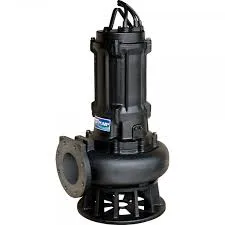Khmer
- Afrikaans
- Albanian
- Amharic
- Arabic
- Armenian
- Azerbaijani
- Basque
- Belarusian
- Bengali
- Bosnian
- Bulgarian
- Catalan
- Cebuano
- Corsican
- Croatian
- Czech
- Danish
- Dutch
- English
- Esperanto
- Estonian
- Finnish
- French
- Frisian
- Galician
- Georgian
- German
- Greek
- Gujarati
- Haitian Creole
- hausa
- hawaiian
- Hebrew
- Hindi
- Miao
- Hungarian
- Icelandic
- igbo
- Indonesian
- irish
- Italian
- Japanese
- Javanese
- Kannada
- kazakh
- Khmer
- Rwandese
- Korean
- Kurdish
- Kyrgyz
- Lao
- Latin
- Latvian
- Lithuanian
- Luxembourgish
- Macedonian
- Malgashi
- Malay
- Malayalam
- Maltese
- Maori
- Marathi
- Mongolian
- Myanmar
- Nepali
- Norwegian
- Norwegian
- Occitan
- Pashto
- Persian
- Polish
- Portuguese
- Punjabi
- Romanian
- Russian
- Samoan
- Scottish Gaelic
- Serbian
- Sesotho
- Shona
- Sindhi
- Sinhala
- Slovak
- Slovenian
- Somali
- Spanish
- Sundanese
- Swahili
- Swedish
- Tagalog
- Tajik
- Tamil
- Tatar
- Telugu
- Thai
- Turkish
- Turkmen
- Ukrainian
- Urdu
- Uighur
- Uzbek
- Vietnamese
- Welsh
- Bantu
- Yiddish
- Yoruba
- Zulu
Telephone: +86 13120555503
Email: frank@cypump.com
ធ្នូ . 25, 2024 12:41 Back to list
Chemical Feed Pump Solutions for Efficient Water Treatment Processes and Applications
Chemical Feed Pumps in Water Treatment Ensuring Efficiency and Safety
Water treatment is a critical process that ensures the safety and quality of water supplied for human consumption, industrial use, and environmental protection. Among the various equipment and technologies utilized in this process, chemical feed pumps play a vital role. These pumps are responsible for the precise dosing of chemicals to treat water effectively, making them essential components in water treatment facilities.
Understanding Chemical Feed Pumps
Chemical feed pumps are designed to deliver a controlled amount of chemicals into the water at specific intervals. The types of chemicals used in water treatment can include disinfectants like chlorine, coagulants such as aluminum sulfate, and pH adjusters like sodium hydroxide. The accurate dosing of these chemicals is crucial—not only to meet the regulatory guidelines but also to protect public health.
There are several types of chemical feed pumps, including diaphragm pumps, peristaltic pumps, and gear pumps. Each type has unique features that make it suitable for specific applications. Diaphragm pumps are popular for their ability to handle corrosive liquids, while peristaltic pumps are favored for their easy maintenance and the gentle handling of fluids.
Importance of Precision and Control
In water treatment, the precision of chemical dosing can significantly impact treatment efficacy. For instance, insufficient dosing of chlorine can lead to inadequate disinfection, allowing pathogens to flourish. Conversely, excessive dosing can result in harmful byproducts, potentially posing health risks to consumers. Therefore, the ability to finely control the flow rate and pressure of chemical feed pumps is essential.
Modern chemical feed pumps often come equipped with advanced technologies such as programmable logic controllers (PLCs) and flow sensors. These features enable operators to maintain consistent dosing rates and make real-time adjustments based on varying water quality parameters. Automatic monitoring and control systems further enhance the reliability of chemical feed processes in dynamic treatment conditions.
chemical feed pumps water treatment

Maintenance and Safety Considerations
The use of chemical feed pumps in water treatment also raises important safety considerations. Chemicals used in treatment can be hazardous, necessitating specialized handling and storage techniques. Regular maintenance of chemical feed pumps is crucial to avoid leaks and spills that could result in environmental contamination or pose health risks to workers.
Effective maintenance protocols include routine inspections, calibration checks, and prompt repairs of any identified issues. Operators should also receive training on safely handling chemicals and responding to emergencies such as spills or equipment failures. Implementing safety measures, such as installing secondary containment systems and ensuring proper ventilation in storage areas, can mitigate the risks associated with chemical use.
Future Trends in Chemical Feed Technology
As water treatment becomes increasingly sophisticated, the role of chemical feed pumps is evolving. Innovations in technology, including the integration of artificial intelligence and IoT capabilities, are set to enhance the efficiency of chemical dosing processes. These advancements enable predictive analytics for better maintenance scheduling and more responsive dosing strategies based on real-time water quality data.
Furthermore, the growing emphasis on sustainability and environmental responsibility is shaping the future of chemical feed systems. There is a push to find alternative chemicals that are less harmful to ecosystems, as well as to develop more energy-efficient pump technologies that reduce overall operational footprints.
Conclusion
Chemical feed pumps are indispensable in the water treatment industry, ensuring that the right amount of chemicals is delivered to treat water effectively and safely. With ongoing advancements in technology, the precision and control of these pumps will only improve, further enhancing the quality of treated water. By prioritizing maintenance and safety, as well as embracing future innovations, water treatment facilities can continue to protect public health and the environment while meeting the demands of a growing population.
-
ISG Series Vertical Pipeline Pump - Chi Yuan Pumps Co., LTD.|High Efficiency, Low Noise, Durable
NewsAug.02,2025
-
ISG Series Vertical Pipeline Pump - Chi Yuan Pumps | High Efficiency, Low Noise
NewsAug.02,2025
-
ISG Series Vertical Pipeline Pump- Chi Yuan Pumps Co., LTD.|High Efficiency&Compact Design
NewsAug.02,2025
-
Heavy-Duty Mining Sludge Pumps - Wear-Resistant Slurry Handling
NewsAug.02,2025
-
Horizontal Split Case Pump with GPT-4 Turbo | High Efficiency
NewsAug.01,2025
-
ISG Series Pipeline Pump - Chi Yuan Pumps | High Efficiency, Durable Design
NewsAug.01,2025










